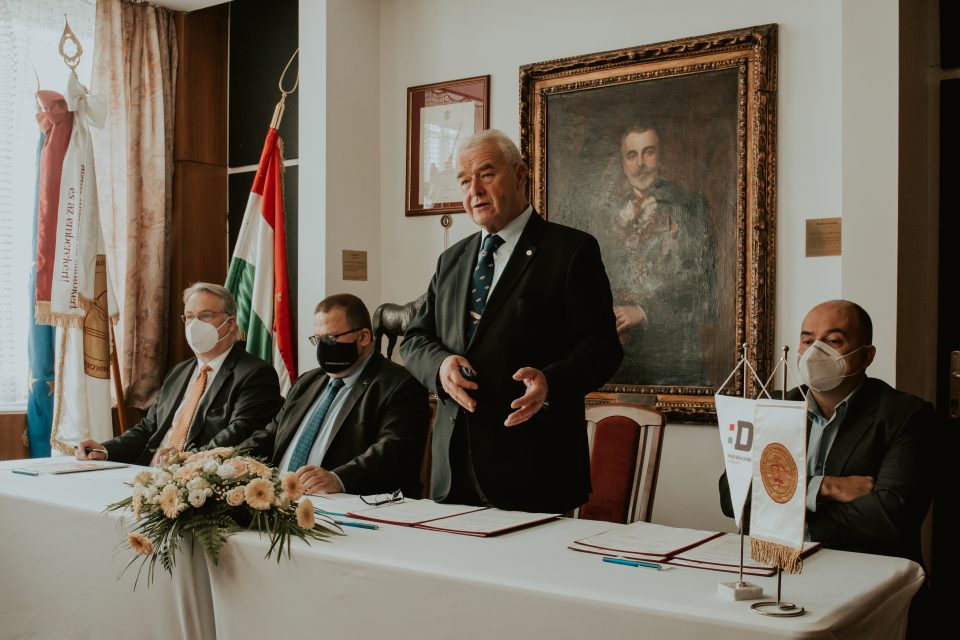The Digital Food Chain Education, Research, Development, and Innovation Institute of the University of Veterinary Medicine Budapest, the Ministry of Agriculture’s State Secretariat for Food Chain Supervision, and the Digital Welfare Program signed cooperation agreements on April 7, 2021, at the Rector’s Office of the University of Veterinary Medicine Budapest.
The signing of the cooperation agreement took place in a ceremonial setting, with the participation of Professor Péter Sótonyi, the Rector of the University of Veterinary Medicine Budapest, Dr. Lajos Bognár, the Chief Veterinary Officer of Hungary and Deputy State Secretary for Food Chain Supervision at the Ministry of Agriculture, and Dr. András Levente Gál, the Head of the Digital Welfare Program and Director of the National Data Asset Agency. Taking into account the epidemiological restrictions, members of the press were able to join the event online and had the opportunity to ask questions to the representatives of the institutions mentioned above after the speeches.
The purpose of the event was to express the common strategic collaboration between the parties in promoting the digitalization of food chain security through the signing of Memoranda of Intent on the first anniversary of the establishment of the Digital Food Chain Education, Research, Development, and Innovation Institute.
The participants collaborate in various areas to promote the digitalization of food chain security. It is an important task to provide digital expertise to future veterinarians and professionals. They place great emphasis on the analysis, research, and innovation related to food chain security data, as well as supporting domestic food chain supervision tasks. The collaboration is part of the Digital Agriculture Strategy and the Digital Food Industry Strategy, with a particular focus on the development of data-driven agriculture and food economy, especially in terms of food chain security.
In addition to professional networks, the Digital Food Chain Education, Research, Development, and Innovation Institute also values the involvement of “lay” actors in society and non-institutionalized professional players. The aim is twofold: on the one hand, the Institute would serve as an information base and aims to bring the field of food chain security closer to consumers, and on the other hand, it actively seeks to channel the needs and knowledge of societal actors into analysis, research, and educational activities.

